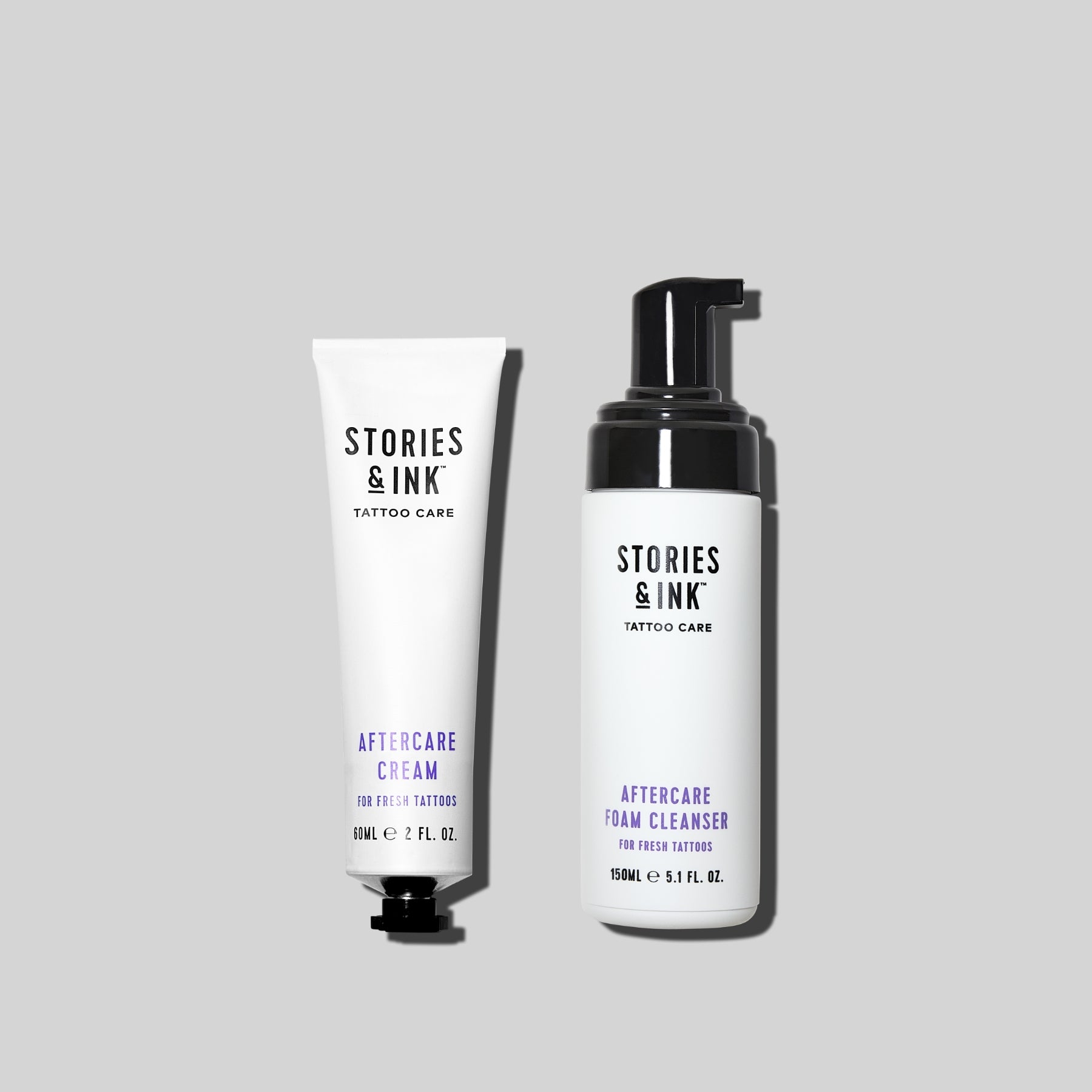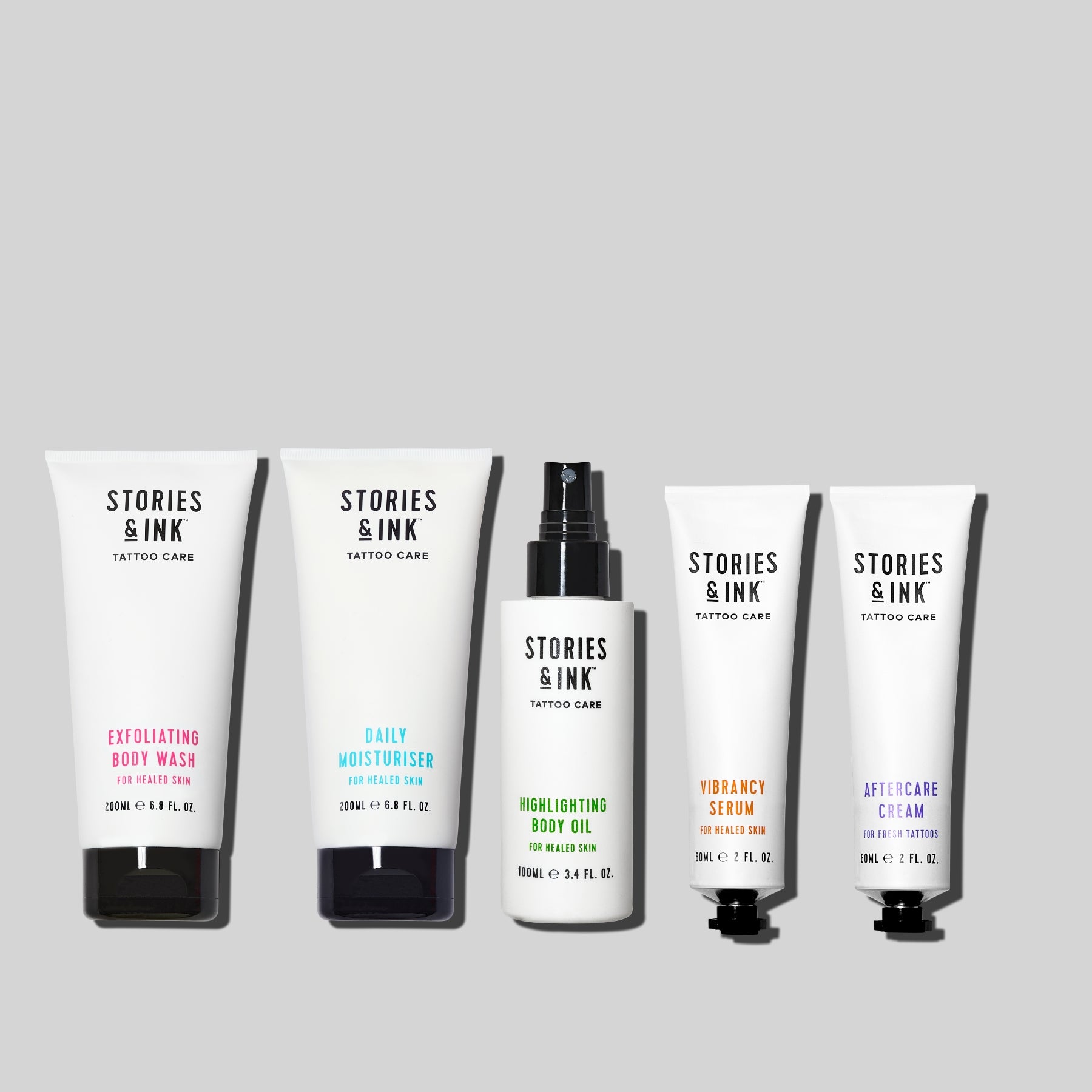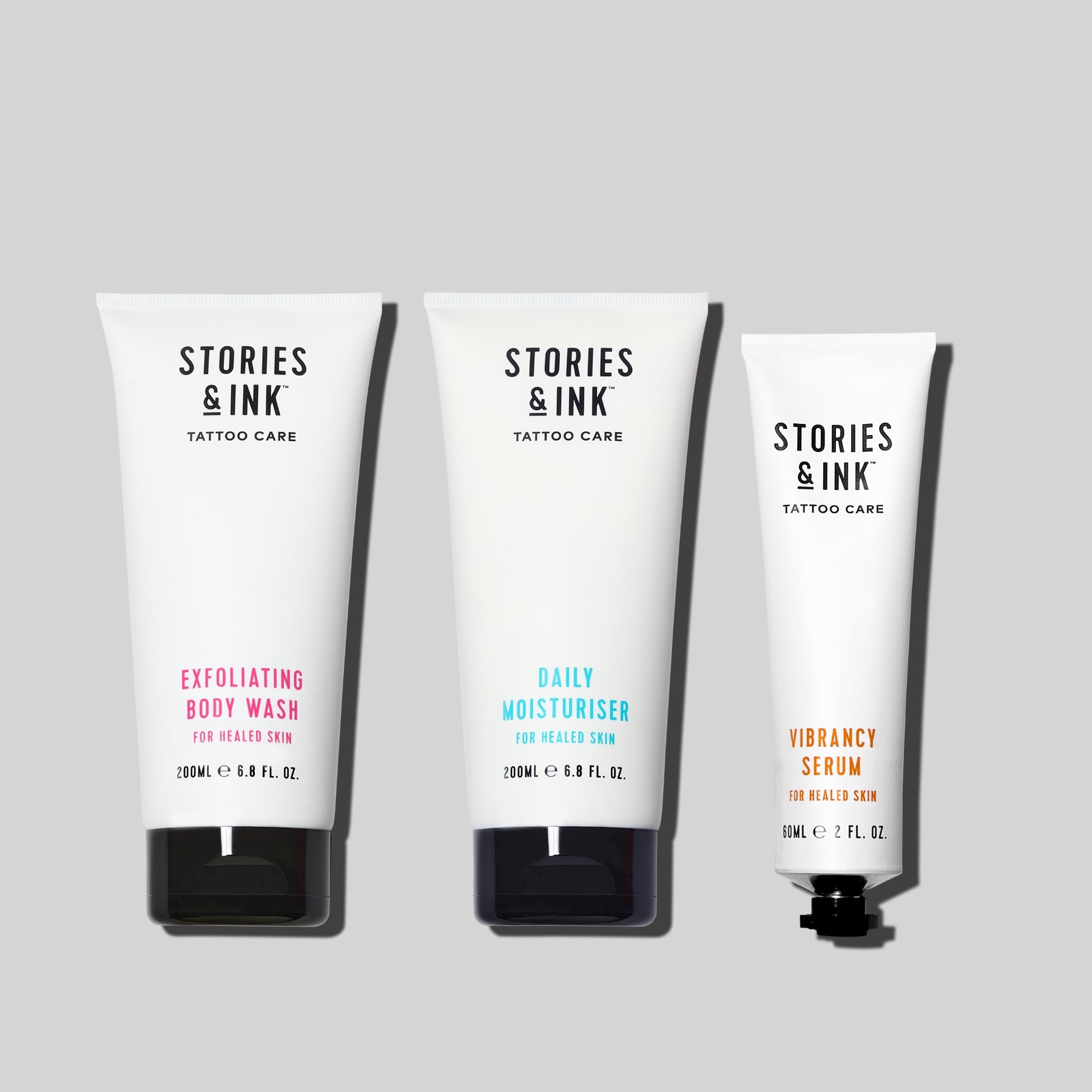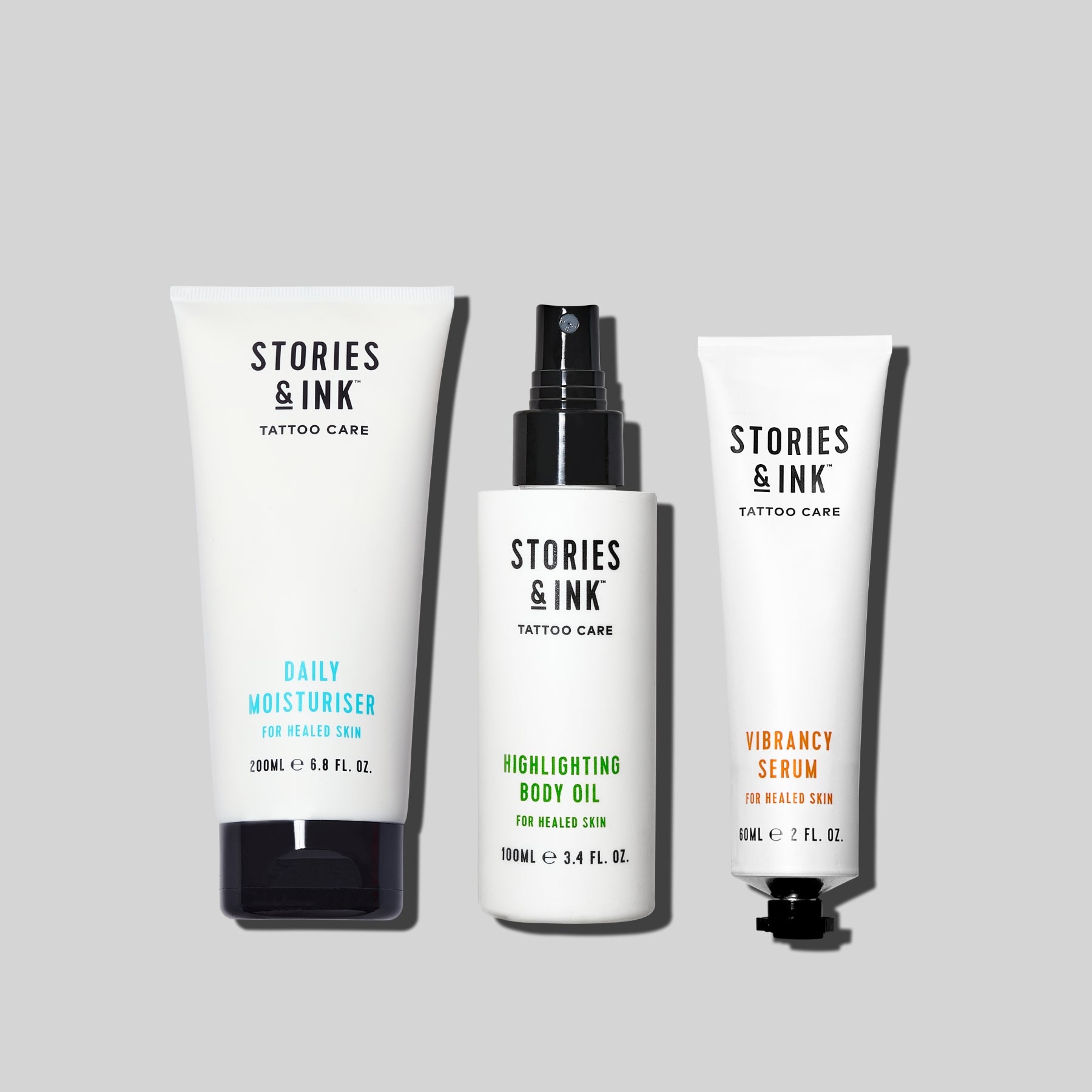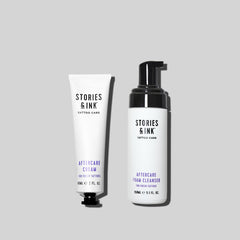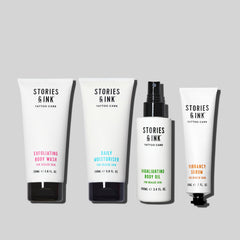Having a skin condition like contact dermatitis may make you unsure if you can get a tattoo. We share everything you need to know about dermatitis and tattoos.
A common form of eczema, contact dermatitis causes the skin to become dry, red, itchy and blistered when exposed to a particular substance.
From plants to perfume, dermatitis is unique to the individual. So a soap that might cause skin irritation to one person could be tolerated by another. Flare ups can be unpredictable and the cause of the skin condition can take a while to pinpoint.
Certain workplaces and environments might exacerbate dermatitis too - for example needing to wear rubber gloves, use cleaning products, or work with textile dyes and colourants.
So with that in mind, tattoo studios present a few dermatitis "watch outs" by their very nature. Perhaps alcohol spray causes your flare ups, you have an allergy to latex, or certain metals used in tattoo machines will blister your skin.
We’ve delved into dermatology to help make your decision easier when considering a tattoo on sensitive skin.
Can you get a tattoo if you have dermatitis?
If your dermatitis flares up when you change up your washing detergent, it doesn’t necessarily mean a tattoo is going to have the same effect. Ever had your hair dyed at the salon or booked in for a brow tint? Reputable establishments will most likely ask you to conduct a patch test with their products ahead of the treatment.
So that annoying blob of dye smudged on the back of your ear for 24 hours could be saving you a serious skin reaction. This isn’t routine at a tattoo parlour though, so it might be a good idea to talk through your wishes and patch test the ink they use.
Will dermatitis affect a tattoo?
Allergic contact dermatitis can cause a common sensitivity to tattoo ink pigments, usually making skin red, blistered and flaky. Plenty of people still get tattoos with skin conditions though - it’s all about understanding your body, doing your research and talking to your tattooist.
The most common ingredients to cause allergic reactions are preservatives and fragrances - so a tattoo ink allergy is rare. With the correct hypoallergenic aftercare, and avoiding your known allergens, you should be able to get your desired tattoo without complications.
Will contact dermatitis flare up after a tattoo?
If your trigger is related to a chemical used in the tattoo process, your contact dermatitis may likely flare up. However you can develop an allergic reaction at any time - the most common being red tattoo ink.
Unfortunately there are some rare and more serious cases though, so it’s important to seek medical attention if you notice an extreme reaction. When speaking to the National Eczema Organisation, Dr. Peter Lio explains how, "the body can create a form of chronic inflammation designed to wall off foreign material."
Can you get contact dermatitis from a tattoo?
In the very way that some people’s skin can tolerate things others can’t, it might be that you didn’t realise you had a tattoo ink allergy. Tattoo allergies can develop over time too - so it’s always something to look out for when adding something new to your ink collection.
For example, a temporary henna tattoo can make an individual allergic to future hair dyes over time. It’s rare, but always worth keeping an eye out for any unexpected symptoms.
Am I allergic to tattoo ink?
Some redness and swelling is totally normal when getting a new tattoo, and the healing of the skin can be mildly itchy too. This is because the breaking of the skin to add a foreign substance will always kick start your immune system to fight the unknown - and that’s a good thing. Sometimes though, elevated symptoms could be the sign of a tattoo allergy.
Symptoms of a tattoo ink allergy include:
- Red rashes
- Itching and irritation
- Skin flaking
- Fluid buildup around the new tattoo
Immediately seek professional medical advice if you begin to experience burning, uncontrollable itching, lumpy tissue, oozing from the tattoo, a high temperature or fever.
Is my tattoo infected?
Inserting a foreign body into your skin is always going to make it a little angry - but a licensed tattoo studio should have taken hygiene precautions to avoid any infection. It’s also important to keep your tattoo clean and refrain from picking the skin. Don’t be tempted to peel off any of those scabs either!
If you suspect your tattoo could be infected, be sure to take measures to look after your own health, as well as the recovery process of your new ink.
Signs of an infected tattoo can include:
- Redness (remember mild redness is normal - but look our for any worsening red areas)
- Bumpy skin
- Pain or sensitivity
I've got dermatitis on my tattoo what should I do?
Contact dermatitis often has a delayed reaction which may not appear until several hours or days after contact with the substance. As with any skin concerns, seek medical advice or ask for a dermatologist referral for any new or concerning symptoms.
A doctor may prescribe you a hydrocortisone cream as a contact dermatitis tattoo treatment to help clear up the soreness. If your symptoms are moderate and under control, there are some other home remedies to try that may alleviate discomfort too:
- Cool compress
- Taking an anti-inflammatory
- Protecting the skin
- Taking a cool bath - though not advised after a new tattoo
- Emollient cream - be sure to check it won’t affect your tattoo with our lowdown on eczema and tattoos.
Aftercare for sensitive skin
We couldn’t mention sensitive skin without shouting about our aftercare range now, could we? We’re really proud of the formulation on our Tattoo Aftercare Duo, which is 100% natural, dermatologically-tested, fragrance free, hypoallergenic, vegan-friendly and suitable for all skin types.
If you have eczema or dermatitis, you can use our products knowing they don’t contain allergens that could make your skin flare up.
Stories & Ink Tattoo Aftercare Duo is hypoallergenic and suitable for all skin types
